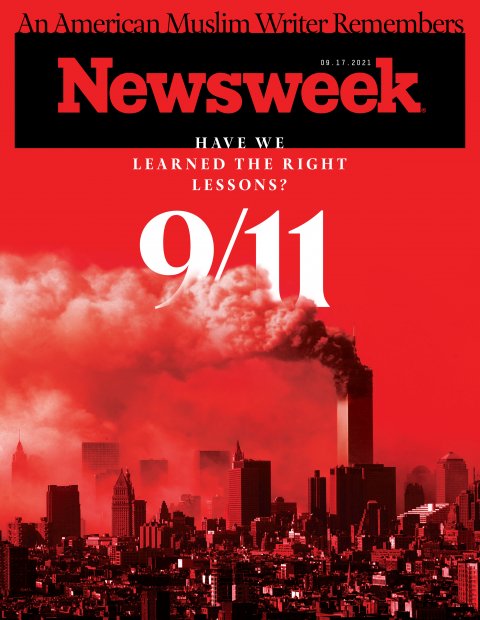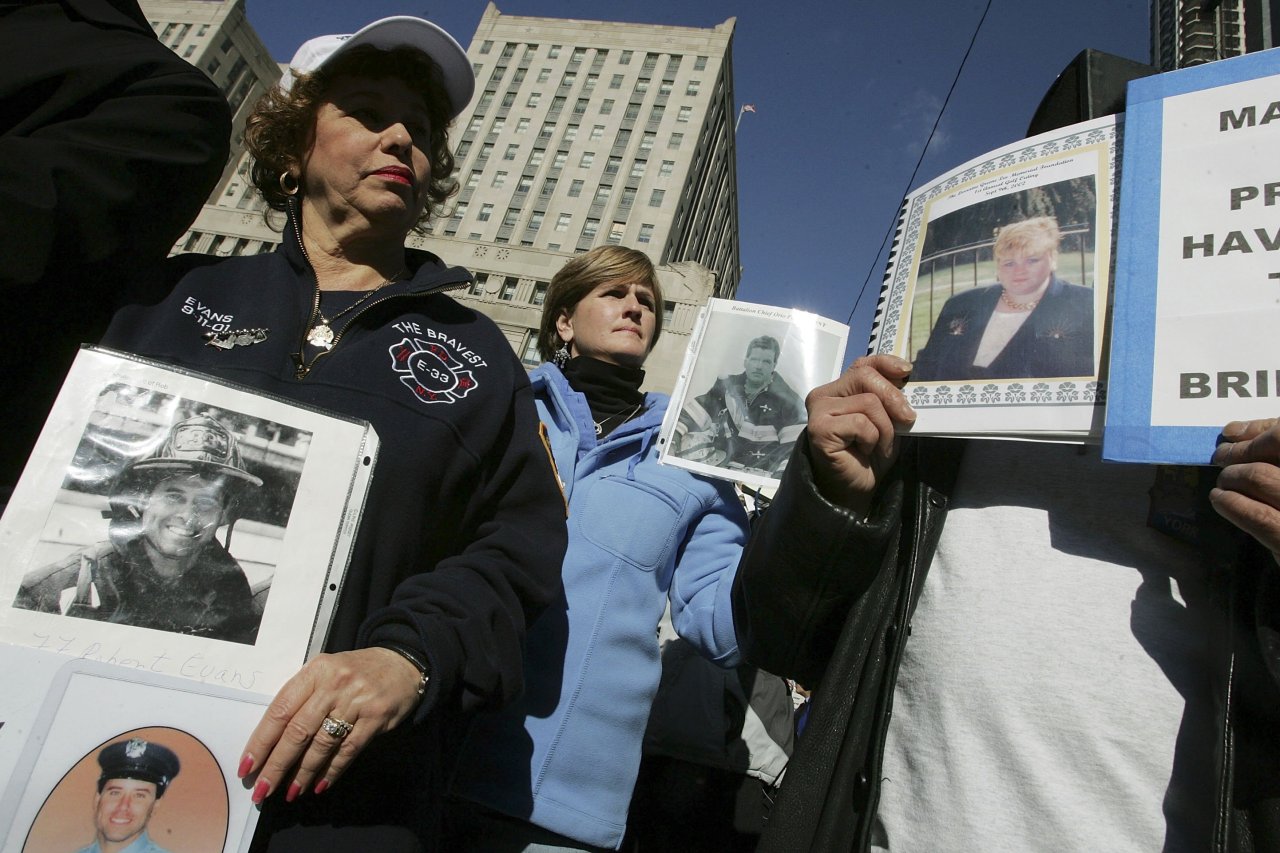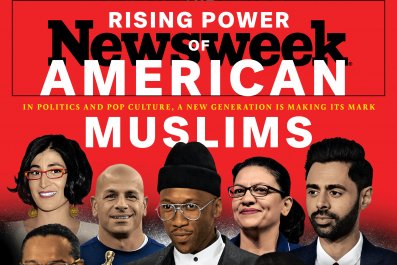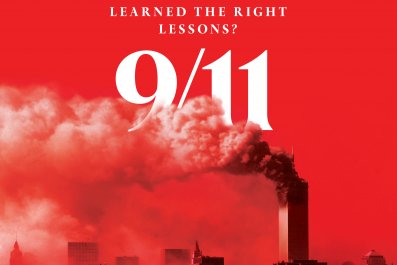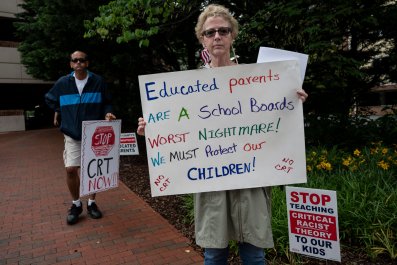In the new Netflix movie Worth, the lead character Ken Feinberg, played by Michael Keaton, leads the fight for fair compensation for 9/11 victims and their families. The real-life Kenneth Feinberg, the first "special master" of the federal government's 9/11 Victim Compensation Fund, has an even more dramatic story to tell—of his efforts to place a value on the lives lost, and convince the loved ones of those who died to take the money, as well as the lingering impact of the tragedy on his own life.
Feinberg, 75, an attorney specializing in mediation and dispute resolution, oversaw the VCF for 33 months following the attacks, personally evaluating claims and deciding compensation values while helping to craft the administrative structure of the fund. Working entirely pro bono, he heard almost 1,000 cases in person, and worked hand in hand with the bereaved families to settle their claims.
Feinberg spoke with Newsweek senior reporter David Brennan about the effort he describes as an "unqualified success"—though not one without controversy. Following are excerpts from their conversation, edited for space and clarity.
Q: Was the first iteration of the 9/11 Victim Compensation Fund a success?
The 9/11 Victim Compensation Fund—the original fund—was, I believe, an unqualified success. Ninety-seven percent of all the families that lost a loved one on the airplanes or at the World Trade Center, or at the Pentagon, voluntarily came into the fund, were paid and signed a release promising not to go to court against the airlines or anybody else in the United States.
In terms of dollars and cents, in terms of the statistics, in terms of achieving the objective sought by Congress, I think the fund was an unqualified success.
I don't think you'll ever see a fund quite like the 9/11 fund again in America. It was a one-off program designed to respond to an unparalleled American tragedy, a unique response to a unique American catastrophe.
Q. How do feel about the efforts over the years to extend and expand the fund to include those with 9/11-related illnesses, both first responders and civilians?
The fact that the fund has been extended in perpetuity is a reflection of elementary fairness. If you compensated 9/11 victims in the period 2001 to 2003, and there are still first responders who are manifesting physical injuries in 2021—cancer and other diseases that didn't appear in 2001—well, I can understand why the fund was extended to provide compensation for health benefits to the first responders. So it's really a tag-along program.
But compensating victims of the 9/11 attacks is not a precedent. And in the last 20 years there hasn't been another 9/11 fund for any other tragedy—the BP Deepwater Horizon oil rig explosion, Hurricane Katrina that left over 1,000 citizens of Louisiana dead from the flooding. There was no 9/11-type fund. There was no 9/11-type fund after the terrorist attacks of the Boston Marathon bombings, or the Pulse nightclub terrorist shootings in Orlando, Florida. It wasn't even considered that such a fund would be created.
So I do think it is altogether appropriate to pause on the 20th anniversary and review the history and success of the 9/11 fund, while acknowledging that it is, in a sense, a very un-American program. And in a sense an aberration, and I think the program is unlikely to be replicated.
Q: Why hasn't a 9/11-type fund been replicated for those other tragic events, which affected large numbers of Americans?
Bad things happen to good people every day in the United States.
The 9/11 fund, the right public policy, the right thing to do at the time, is contrary to the political science of the American system. The American political philosophy of equal protection of the law weighs against the idea that there should be special public compensation—not private—using taxpayer money, only for certain victims. Everybody else, fend for yourself. Get your lawyer, go to court with a judge and a jury.
That's why I think it is a unique experiment that is unlikely to be replicated.
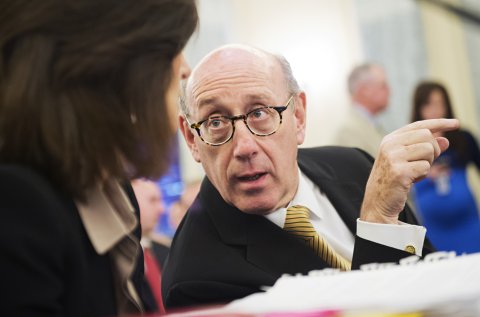
Q: Did you expect the take-up for the original fund to be so high and for that first iteration of the VCF to be so successful?
I wasn't sure. The program was financially generous. Individual claimants were paid as if they had gone to court and been successful in a trial. We wanted to avoid those types of lawsuits. And we wanted to encourage all of those individuals to voluntarily receive compensation much quicker with less delay, less inefficiency [than if they had gone to trial].
And it worked. People were paid millions of dollars within 60 days of a completed application; no lawyers, no lawsuits, no judge and jury, no trial by battle, no uncertainty about the verdict. Instead, they went into the program, filed an application, and got compensated with public money. It was very unique.
Q: Why did some families decline the VCF compensation?
Ninety-four families that lost loved ones on 9/11 because of the terrorist attacks decided to litigate. They didn't litigate in order to get more money.
They gave two reasons.
One: They believed their dead family member would want them to litigate in order to find out what really happened on 9/11, who was asleep at the switch in the government bureaucracy. I told those lawyers and their clients: "That's ridiculous. You won't find that out in a lawsuit. There will be privileges [invoked], government delays. If you want answers, there is a special commission looking into the attacks. There are Senate and House committees. That's where you're going to get answers, not in the adversarial setting of the courtroom.
Secondly, they said, our dead family member would want to make the airlines safer by bringing a lawsuit, to deter negligence. I said, the airlines are already deterred. Bringing a lawsuit isn't going to make the airlines any safer.
They all settled their lawsuits about five years later. There was never a trial in the United States over the issue of negligence or responsibility for the attacks. There was never any apology from the United States government admitting wrongdoing in the events leading up to the 9/11 attacks. To this day there has never been an apology.
Q: How many people were denied their claims?
There were about 7,300 applications to the fund. We paid about 5,300. The reason that almost all of the 2,000 were denied is because they filed a claim alleging mental injury, no physical injury. The law expressly prohibited compensation for purely mental anguish, pain and suffering.
I didn't struggle with it because Congress couldn't have been clearer. But secondly, if you start permitting eligibility for mental claims, you are opening up the floodgates: "Mr. Feinberg, I live in Omaha, Nebraska. I was watching CNN, and saw the planes hit. I can't get out of bed."
Also, the minute you start compensating mental claims, you are requiring all sorts of delay, written medical records, psychiatric records, which slow down the program. [It] would have been a major challenge, which I'm glad I didn't have to confront.
Q: There were some disputes from families who thought they should have been awarded more. Are you happy with how those were settled?
I wouldn't say happy. It was necessary to make sure—as Senator Ted Kennedy had warned me—that 10 percent of the claimants didn't receive 90 percent of the taxpayer's money. That is why the law allowed me to exercise discretion to bring down the top awards and bring up the bottom awards.
The average award in the 9/11 fund for a death claim was about $2 million, the median award was $1.6 million. What I tried to do was narrow the difference between the stockbroker or the banker, versus the waiter or the fireman. And I largely succeeded.
Now the people at the top, they brought a lawsuit. They sued me saying I had no authority to arbitrarily reduce their awards. The federal courts reviewed the statute and confirmed my discretion in compensating and adjusting death-claim calculations. And it worked pretty well.
Q: Do you have any regrets about the way the process was handled?
Given the statutory mandate that Congress laid out, I'm satisfied. Now, if Congress asked if the statute should be drafted differently, I would have said yes.
I would have said, if you want to help claimants, value lives equally. Give every family that lost a loved one the same amount of money. The minute you statutorily require each claimant to receive a different amount of money, you're going to promote the very divisiveness among claimants that you're trying to avoid.
"Mr. Feinberg, you gave me $3 million tax-free. But wait a minute, you gave my next door neighbor $4 million. What do you have against my dead wife? You didn't even know her, and you've already diminished her value by $1 million when compared to my next door neighbor."
I try to explain: "Mr. Jones, that's because your next door neighbor who died earned more than your wife. That's the reason, just like the American legal system takes that into account."
Well, that got me nowhere. No one wanted to hear that, that's a technical legal explanation. I learned of a fascinating aspect of human nature. People who complained to me didn't complain because their compensation was too low, very rarely did they do that. They complained because the neighbor's compensation was higher.
Everybody counts other people's money. I learned that.
And in a very emotional time, when the full impact of the 9/11 attacks was gradually becoming known, people were very emotional and very, very vulnerable. It made a huge difference.
Q: How heavily did the responsibility weigh on you?
When you're calculating a dollar allowance for 5,300 dead and injured victims, and you're inviting any victim who so requests to come and see me privately in conference, and you listen to family member after family member, injured victim after injured victim explain the horror of what they went through...if you get three hours of sleep, consider yourself lucky. It was all consuming just trying to get through the day.
Those experiences are never far from my memory at any time. A day doesn't go by—it doesn't have to be an anniversary—where at some point during the day, working on a case, you remember some of the horror stories. You try and go on as best you can.
